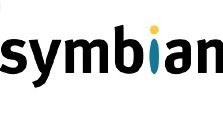 Nokia has just bought out the rest of the Symbian partners, giving it 100% ownership of the Symbian operating system, which it plans to "give away"!
Nokia has just bought out the rest of the Symbian partners, giving it 100% ownership of the Symbian operating system, which it plans to "give away"!
According to the The Register:
Nokia has bought up the bits of Symbian it didn't already own and is chucking the OS into an open-source foundation along with the S60 UI layer, accompanied by Sony Ericsson and DoCoMo, who are throwing in UIQ and MOAP(S) respectively.
The BBC adds
Nokia, which already owns 48% of the UK-based firm, intends to develop its software to compete with Google's planned Android operating system.
...
The Symbian foundation will bring together Nokia, AT&T, LG, Motorola, NTT Docomo, Samsung, Sony Ericsson, STMicroelectronics, Texas Instruments and Vodafone in collaboration on a new, royalty-free open software platform for mobile phones.
Here on MobLearn we have always been Android fans, as much for the open ethos as for the technology itself, and this news certainly adds an exciting new chapter, especially given the Android delays, and the very solid userbase that Symbian already has in the market.
small "ps": although technically "open", access to the Symbian source code is not free. You need to pay $1500 to be in the foundation. But relative to the costs of having your own OS, this must seem minor.
Geoff (with thanks to James for spotting this)












